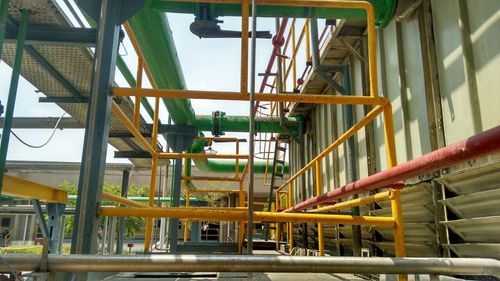
In the relentlessly corrosive environment of our world, the battle against material degradation is a constant struggle. From the microscopic pitting of metal to the catastrophic failure of infrastructure, corrosion poses a significant threat to industries and economies alike. Amidst this challenge, anti-corrosive coating services emerge as a critical line of defense, employing a range of technologies and materials to safeguard assets, extend lifespans, and ensure operational safety. Far from being a mere cosmetic application, these services represent a crucial investment in sustainability, longevity, and economic stability.
The fundamental purpose of anti-corrosive coatings is to create a protective barrier between a material and its corrosive environment. Corrosion, an electrochemical process, arises when a material, typically a metal, reacts with its surroundings, most commonly with oxygen or water. This leads to a break down of its structure, resulting in rust, pitting, and ultimately, structural failure. Anti-corrosive coatings interrupt this process by preventing the necessary components of the corrosive reaction – oxygen, water, and electrolytes – from reaching the vulnerable surface. The effectiveness of a coating hinges on its ability to adhere strongly, resist abrasion and impact, withstand extreme temperatures, and remain chemically inert.
The spectrum of anti-corrosive coating services is vast and diverse, encompassing a range of technologies tailored to specific materials and environments. These can be broadly categorized into several groups:
Organic Coatings: This category includes paints, epoxies, polyurethanes, and other polymer-based materials. They form a film over the substrate, preventing moisture and oxygen from reaching the metal surface. These coatings offer a wide range of options with varying degrees of chemical resistance, flexibility, and durability, often incorporating pigments and additives for enhanced performance.
Inorganic Coatings: This includes materials like zinc, chrome, and phosphate conversion coatings. These coatings typically form a chemically bonded layer, often providing cathodic protection. Galvanizing, for instance, where steel is coated with zinc, creates a sacrificial layer that corrodes preferentially, protecting the underlying steel.
Metallic Coatings: This involves physically depositing a layer of metal onto the surface, often through techniques like electroplating, thermal spraying, or vapor deposition. These coatings offer excellent barrier properties and resistance to high temperatures and abrasion.
Conversion Coatings: These involve altering the surface of the material itself to make it less susceptible to corrosion. Examples include anodizing aluminum, which creates a hard, corrosion-resistant oxide layer.
Specialty Coatings: This category includes coatings with unique properties, such as self-healing coatings, anti-fouling coatings for marine applications, and high-temperature coatings for industrial equipment.
The application of anti-corrosive coatings is ubiquitous, spanning a vast range of industries. In the construction sector, they are vital for protecting steel structures, pipelines, and bridges from weathering and environmental degradation. The automotive industry relies on coatings to safeguard car bodies and chassis from rust and road salt. In the marine industry, anti-fouling coatings prevent the accumulation of marine organisms on ships, protecting their hulls from damage and drag. The oil and gas industry employs coatings on pipelines and offshore platforms to prevent corrosion in harsh, corrosive environments. Other sectors, like aerospace, food processing, and manufacturing, also depend heavily on anti-corrosive coatings to ensure the durability, safety, and longevity of their products and equipment.
The science behind anti-corrosive coating services is constantly evolving. Nanotechnology, for example, is being explored to create coatings with superior barrier properties, self-healing capabilities, and enhanced durability. Advanced techniques like plasma spraying and chemical vapor deposition are being used to apply coatings with greater precision and uniformity. Research is also focused on developing environmentally friendly coatings that reduce reliance on harmful chemicals and solvents.
Anti-corrosive coating services are not just a maintenance task; they are a fundamental aspect of asset protection and sustainability. By safeguarding materials from the ravages of corrosion, they contribute to the longevity of infrastructure, the reliability of equipment, and the overall economic health of countless industries. As technology advances, we can expect even more sophisticated and effective coating solutions, ensuring that the battle against corrosion remains a winnable one, protecting our vital assets for generations to come. The investment in these services is not merely an expense; it is a testament to prudent engineering, sound economic practice, and a commitment to the long-term health and safety of our built environment.
Looking for Best Price